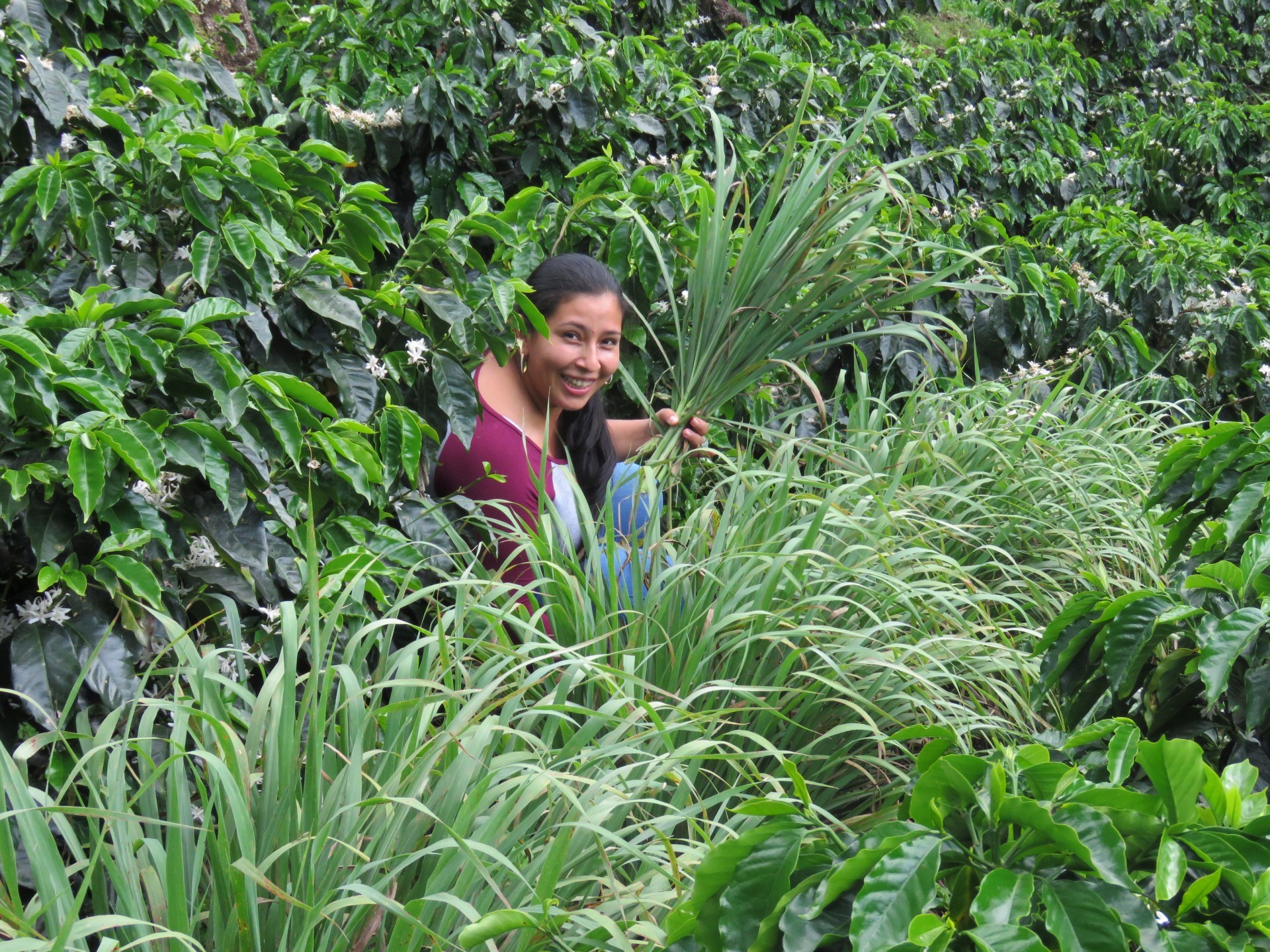HONDURAS FTO KARLA PORTILLO HONEY GRAINPRO
Bags 0
Warehouses Oakland
Flavor Profile Apple juice, caramel, chocolate, balanced
Out of stock
About this coffee
Grower
Karla Patricia Portillo | Finca Planeta Verde
Altitude
1598 masl
Variety
Icatú
Soil
Clay loam
Region
El Cerrón, Marcala, La Paz Department, Honduras
Process
Honey processed, depulped and immediately dried on raised screens in the sun
Harvest
December - March
Certification
Fair Trade | Organic
Coffee Background
Karla Patricia Portillo’s family are longtime producers in the Marcala area, however her personal farm, Finca Planeta Verde, was only established in 2015. Aside from the clear objective of producing organic and high quality coffee, Karla has had excellent success with varieties considered “exotic” to the area, such as bourbon (a staple of Guatemala and El Salvador’s older estates but rare in Honduras), and icatú, a Brazilian-developed hybrid with robusta and bourbon parentage (which is VERY rare in Honduras). Icatú was eventually planted on Karla’s family farm because of its reputation for high disease resistance and cup quality. Regarding cup quality, that in our experience is undeniable: Karla’s honey process lot is hugely bright and brisk, with citric acid, lemongrass aromatics, and a high complexity of flavors that brings together ripe pluot, sweet tobacco, and basil.
Karla herself is a third generation coffee producer and self-described nature lover: “our family expreses itself through quality coffee, feeling the breeze at the foot of the mountain, enjoying the beautiful nature, listening to the song of the birds, and seeing the animals next to the coffee trees; all this represents an unparalleled experience.” She began experimenting with honey and natural processing after attending a processing orientation at COMSA, her cooperative.
Karla’s honey process microlot is an entirely hand-made coffee: after depulping the coffee is fermented for only a short amount of time in a small tank, and then taken directly to the drying patio for the delicate drying phase. On the patio, the sticky parchment is monitored for exact temperature constantly, and is turned constantly during the first few days of drying to prevent residual moisture from being trapped.
Finca Planeta Verde is in the community of El Cerrón, outside the municipality of Marcala, in Honduras’ La Paz department, very close to the border with El Salvador. This part of the country is extremely well respected for coffee, so much so that in 2005 the region received Honduras’ first Denominación de Origen (DO) for coffee which, similar to American Viticulture Areas (AVAs), certifies the region’s terroir and final products as being authentic, so as to protect it from adulteration or imitation. The DO designation applies to Honduras’ mountainous southwestern region and includes parts of Intibucá, La Paz, and Comayagua, although it is simply named “DO Marcala” after the town itself, considered the region’s capital of coffee heritage.
Karla is an associate of Café Orgánico Marcala Sociedad Anónima, or COMSA, a large and well-respected growers association based in the town of Marcala. COMSA was founded in 2001 with the equivalent of $365 USD and 61 small coffee producers, 12 women and 49 men. Today the organization has more than 1,500 associate coffee farmers covering an area of 5,800 hectares, maintains multiple certifications, and is considered one of Honduras’ model business organizations.
From the beginning COMSA has promoted organic agricultural methods and quality of coffee as fundamental values for all participating producers. This was a reaction to what the founders saw as an over-reliance on agro-toxins which threatened the longevity of family farms (often a family’s sole asset) and the physical health of the people farming one of their country’s most gifted coffee terroirs. In 2012 the group acquired their own parcel of farmland and built “Finca Biodinámica La Fortaleza” (“Biodynamic Fortress”), a demonstration farm for testing sustainable techniques, as well as designing optimal farm inputs that can be created using common by-products of coffee farming—the results of which are shared throughout COMSA’s farmer network. In recent years COMSA has begun to focus more on what they call “La Finca Humana” (the human farm): an increased consciousness within the farmer that seeks to integrate their physical and social lives with the natural environment around them using observation, investigation, analysis, reflection, and activities that connect farmers with one another and the planet.







